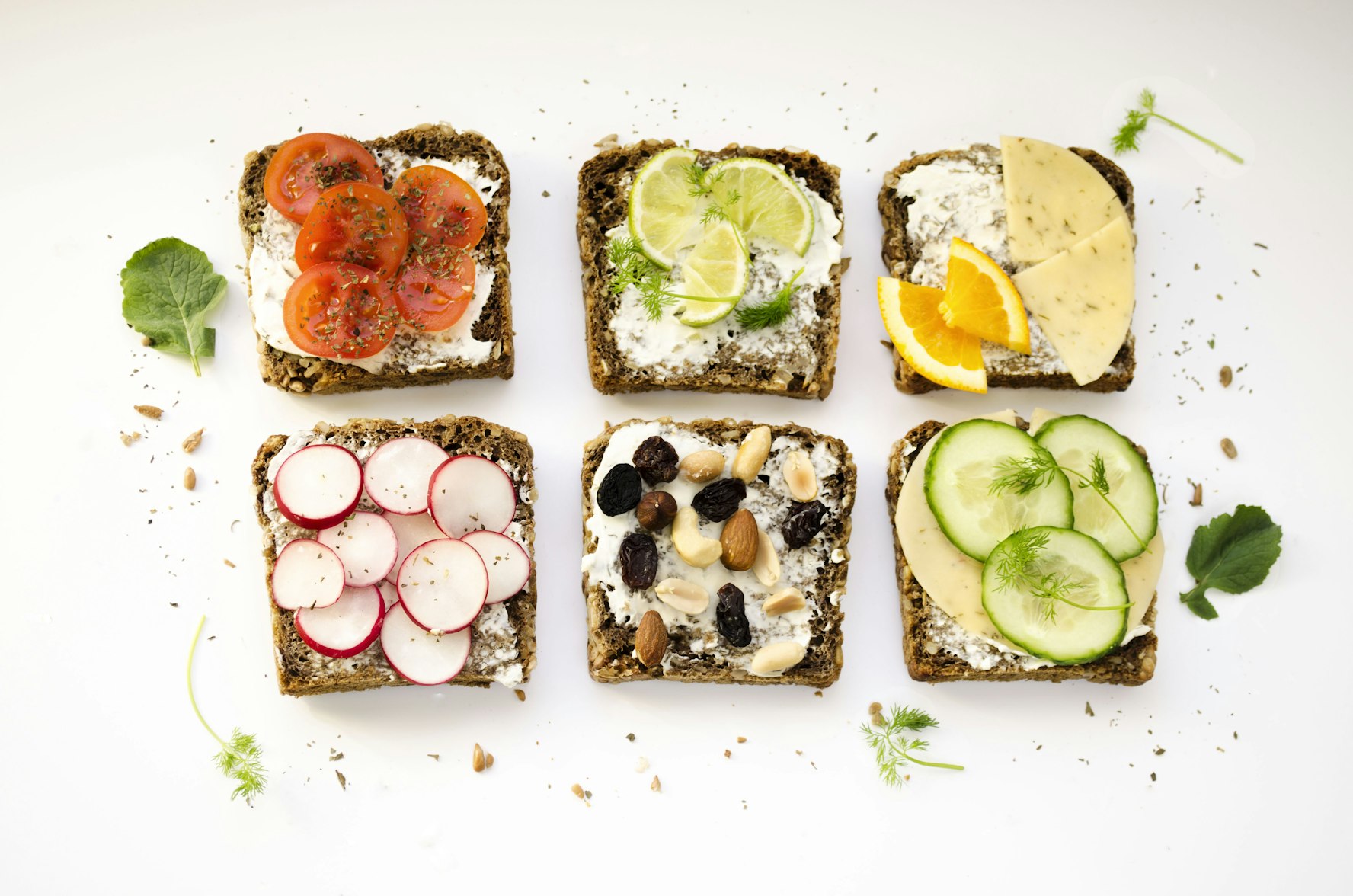Fact Box
1. Diversity in Diet for a Happy Gut: Eating a variety of plant-based foods enriches your gut microbiome diversity, leading to improved digestion and mental health.
2. Fermented Foods for Balance: Incorporate fermented foods like yogurt, kefir, kombucha, and sauerkraut into your diet to boost your intake of probiotics.
3. Mindful Eating Practices: Slow down and pay attention to the eating experience to enhance digestion, reduce overeating, and increase meal satisfaction.
4. Meditation and Gut Health: Regular meditation practice can reduce stress and inflammation, indirectly benefiting gut health by fostering a more favorable environment for gut bacteria to thrive.
5. The Importance of Hydration: Staying well-hydrated is crucial for maintaining a healthy gut. Water aids in digestion and helps keep the mucosal lining of the intestines strong.
In the quest for holistic health, the intricate dance between our mind and gut plays a pivotal role, one that recent scientific explorations have begun to illuminate with fascinating clarity. This interplay, known as the mind-gut connection, is not just a passing health trend but a significant paradigm shift in understanding how our physical and mental well-being are deeply intertwined.
Emerging research offers compelling evidence that the state of our gut health can profoundly influence our mental health, altering mood, stress levels, and cognitive functions. Meanwhile, mindfulness practices, long revered for their mental health benefits, are now being recognized for their potential to foster gut health, creating a harmonious balance that supports overall well-being.

Understanding the Mind-Gut Connection
At the core of the mind-gut connection lies the gut microbiome, a complex ecosystem within our gastrointestinal tract, home to trillions of microbes, including bacteria, viruses, fungi, and more.
These microscopic inhabitants play a critical role in digestion, immunity, and, astonishingly, our mental health. The diversity and balance of these microbes are crucial for our body’s proper functioning, influencing everything from nutrient absorption to the immune response.
Scientific Insights
The dialogue between the gut and the brain occurs through various channels, most notably neurotransmitters, the vagus nerve, and the immune system. Neurotransmitters produced in the gut, such as serotonin and dopamine, are pivotal for mood regulation and cognitive functions, suggesting our gut microbiota can directly influence our feelings and thoughts.
The vagus nerve, a critical component of the body’s autonomic nervous system, serves as a two-way communication highway between the brain and the gut, allowing each to affect the other’s operations significantly. Moreover, the gut’s immune system plays a part in signaling the brain, especially under conditions of inflammation, which can impact mental health.
Real-life Implications
The balance—or imbalance—of our gut microbiome has tangible effects on our mental well-being. Studies have linked imbalances in gut microbiota composition to a range of mental health issues, including depression, anxiety, and heightened stress levels.
These findings suggest that disturbances in our gut can lead to significant shifts in how we feel and process emotions, underscoring the importance of maintaining a healthy gut for mental and emotional resilience.
Bridging the gap between our physical and mental selves, the mind-gut connection reveals a complex, bidirectional relationship in which the health of one profoundly affects the health of the other.
As we delve deeper into this connection, the emerging picture is clear: by nurturing our gut health through mindful practices and dietary choices, we can enhance our mental well-being, paving the way for a more balanced and healthy life.

The Gut’s Impact on Mental Health
The burgeoning field of psychobiotics has thrust into the limelight studies that underscore the profound impact of gut health on mental well-being. Research delineates a clear, bidirectional highway where not only does the brain affect the gut flora, but the state of the gut profoundly influences mental health conditions, including depression, anxiety, and stress.
One landmark study published in the “Nature Microbiology” journal found that individuals with a more diverse gut microbiome exhibited lower susceptibility to stress, anxiety, and depressive symptoms, suggesting a robust microbial composition can fortify mental health.
Similarly, a meta-analysis reported in the “Journal of Clinical Medicine” concluded that probiotics have the potential to significantly reduce depression symptoms, indicating a direct influence of gut health on mood regulation.
The mechanisms through which the gut impacts mental health are multifaceted. Inflammation, often stemming from gut dysbiosis, can trigger immune responses that affect the brain, leading to depressive symptoms.
Another critical pathway is the gut microbiome’s ability to produce neurotransmitters. For instance, an estimated 90% of the body’s serotonin, a neurotransmitter crucial for mood regulation, is produced in the gut. This production plays a vital role in signaling to the brain, influencing emotions and mood directly.
Lastly, the gut’s stress response, mediated through the hypothalamic-pituitary-adrenal (HPA) axis, underscores how a distressed gut can elevate stress levels, further affecting mental well-being.
Mindfulness Practices for Gut and Mental Health
Mindfulness, the practice of being present and fully engaged with the moment without judgment, has emerged as a potent tool in managing both mental and gut health. Its relevance extends beyond mental tranquility to influencing physiological processes, including those in the gut, highlighting its role in the mind-gut health paradigm.
Specific mindfulness practices like mindful eating, meditation, and yoga not only reduce stress but also promote a healthier gut.
- Mindful eating encourages a deeper connection with food, enhancing digestive processes by reducing stress-related eating and encouraging healthier dietary choices.
- Meditation has been shown to lower stress levels, thereby reducing inflammation and potentially benefiting gut health.
- Yoga, by combining physical postures, breathing exercises, and meditation, can alleviate stress and promote a healthier gut microbiome.
Supporting these practices, a recently published study found that mindfulness-based stress reduction techniques could significantly improve symptoms of irritable bowel syndrome (IBS), a common gut health disorder.
Another study highlighted that regular meditation could lead to improvements in gut health by modulating the stress response, thereby positively influencing the gut microbiome’s balance.
This evidence underscores the effectiveness of mindfulness practices not just in enhancing mental well-being but also in fostering a healthier gut. By adopting mindfulness practices, individuals can forge a path toward holistic health, where the mind and gut are in harmonious balance, each supporting the other in achieving a state of overall well-being.

Integrating Mind-Gut Health into Daily Life
Incorporating mindfulness and gut health practices into one’s daily life can seem daunting, yet with small, intentional steps, it becomes not only manageable but also profoundly rewarding. Here are practical tips and strategies for nurturing both mind and gut health.
Optimize Your Diet:
- Diversify your plate: Aim for a colorful array of fruits and vegetables to ensure a wide variety of nutrients and fiber essential for a thriving gut microbiome. Each color provides different phytonutrients beneficial for gut health.
- Embrace fermented foods: Regularly include fermented foods like yogurt, kefir, kombucha, sauerkraut, and kimchi in your diet. These foods are rich in probiotics, aiding in the balance of gut flora.
- Incorporate prebiotics: Include foods like garlic, onions, leeks, asparagus, and bananas that act as food for beneficial gut bacteria, fostering a healthy gut environment.
Establish a Mindfulness Routine:
- Meditation: Start with as little as five minutes of meditation daily. Use apps or online resources if you’re a beginner to guide your practice. Gradually increase the time as you feel more comfortable.
- Mindful eating: Practice eating without distractions. Focus on the taste, texture, and aroma of your food. Chew slowly, recognizing the nourishment your food provides to improve digestion and satisfaction with meals.
- Yoga: Incorporate yoga sessions into your week, aiming for a mix of styles. Gentle yoga can soothe the mind and body, while more vigorous forms can improve digestion and reduce stress.
Hydration Habits:
- Start your day right: Begin with a glass of water every morning to kickstart your digestion and metabolism.
- Set reminders: Use apps or set alarms as reminders to drink water throughout the day to stay adequately hydrated.
Enhance Sleep Quality:
- Establish a sleep routine: Aim for 7-9 hours of sleep per night. Try to go to bed and wake up at the same times daily, even on weekends.
- Create a restful environment: Ensure your bedroom is conducive to sleep – cool, dark, and quiet. Consider using white noise machines or earplugs if necessary.
- Limit screen time: Reduce exposure to screens at least an hour before bedtime to decrease blue light exposure, which can disrupt sleep cycles.
Overcoming Challenges
Maintaining gut health and a mindfulness practice amidst a busy lifestyle can be challenging. Time constraints and stress might deter consistent practice.
Overcoming these hurdles starts with setting realistic goals and integrating practices seamlessly into your routine, like mindfulness during daily activities or choosing gut-friendly foods during grocery shopping. Remember, small changes cumulatively lead to significant benefits.
Long-term Benefits
Adopting a lifestyle that supports the mind-gut connection can transform your overall health. Benefits include improved mental health, enhanced digestion, reduced risk of chronic diseases, and increased emotional balance and resilience. Over time, these practices promote not just a healthier life but also a more mindful, present, and joyful existence.
Bottom Line
The journey through understanding and nurturing the mind-gut connection unveils a fascinating avenue toward achieving holistic health. Let this be a call to action for everyone to start integrating mindful and gut health practices into their daily routines. The steps are simple, the commitment is minimal, yet the rewards are immense and long-lasting.
Resources for Further Reading
- “Gut: The Inside Story of Our Body’s Most Underrated Organ” by Giulia Enders – Offers a humorous yet informative perspective on the importance of the gut and its impact on our health and mood.
- “The Microbiome Solution: A Radical New Way to Heal Your Body from the Inside Out” by Robynne Chutkan – Provides insights into how the microbiome works and practical advice for restoring gut health.
- “The Good Gut: Taking Control of Your Weight, Your Mood, and Your Long-term Health” by Justin Sonnenburg and Erica Sonnenburg – Explores the connection between our gut microbiome and various aspects of health, including weight and mental health.

Leave a Reply